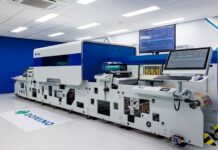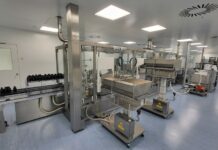A groundbreaking study titled “Stabilization of the Pharmaceutical Finished Dosages Form by Using Various Techniques” has been published in the Asian Journal of Dental and Health Sciences (AJDHS). This research delves into the critical challenge of stabilizing pharmaceuticals, particularly those requiring stringent temperature controls. The study offers innovative solutions to enhance pharmaceuticals’ stability and shelf life through advanced techniques.
The study emphasizes stabilizing drugs that typically require refrigerated conditions to maintain efficacy. By leveraging lyophilization, also known as freeze-drying, the researchers have developed methods to stabilize medicines at room temperature, thereby simplifying pharmaceutical distribution and storage logistics. This research focuses on the Posaconazole injection, which conventionally requires storage at 2-8°C. The researchers aim to stabilize this formulation at room temperature, mitigating the challenges associated with cold chain logistics.
Lyophilization is highlighted as a pivotal technique in this study. The researchers optimized the lyophilization cycle through a series of trials to ensure the drug’s stability without compromising its efficacy. Various parameters, such as temperature, ramp, hold time, and vacuum settings, were meticulously adjusted. For instance, in one of the successful trials, the primary drying temperature was set at 5 °C, leading to an intact cake or powder with favorable reconstitution time and moisture content.
The results are promising. They show that the lyophilized product remains stable for up to 12 months at room temperature under real-time conditions and for six months under accelerated conditions. This breakthrough implies that drugs, previously limited to refrigerated storage, can now be stored and transported at ambient temperatures without losing their potency.
Pallav Dave recognized the following strengths and weaknesses of the journal and recommended them to the author for improvement;
Strengths included;
Innovative Techniques: Advanced lyophilization techniques can stabilize pharmaceuticals at room temperature, a significant innovation that can revolutionize the storage and distribution of temperature-sensitive drugs.
Detailed Methodology: The study thoroughly accounts for the experimental procedures, including optimizing lyophilization cycles. This transparency allows for reproducibility and further research in the field.
Practical Applications: This research has profound practical implications. By enabling room temperature stability, the logistics of pharmaceutical distribution, especially in regions with limited refrigeration facilities, become more manageable and cost-effective.
Weaknesses included;
Scope of Application: While the research focuses on Posaconazole, the applicability of these stabilization techniques to a broader range of pharmaceuticals remains to be explored. Future studies could expand on this by testing other drugs with similar stability challenges.
Long-term Stability: Although the study shows stability for 12 months, extended long-term studies are necessary to confirm the stability beyond this period. This would provide more robust data for regulatory and commercial purposes.
Environmental Impact: The environmental impact of the lyophilization process, including energy consumption and sustainability, needs to be addressed in detail. Future research could evaluate the ecological footprint of these techniques and explore more sustainable practices.
About the Peer Reviewer
Pallav Dave, a regulatory compliance analyst based in Kentucky, was a peer reviewer for this manuscript. With extensive experience in regulatory affairs and pharmaceutical compliance, Dave brings a critical eye and a wealth of knowledge to the peer review process. His expertise ensures that the research meets the highest scientific standards and adheres to regulatory requirements, ultimately contributing to the advancement of pharmaceutical sciences. Dave’s commitment to quality and innovation is reflected in his thorough and insightful review, providing valuable feedback to enhance the study’s impact and applicability in the real world.




























